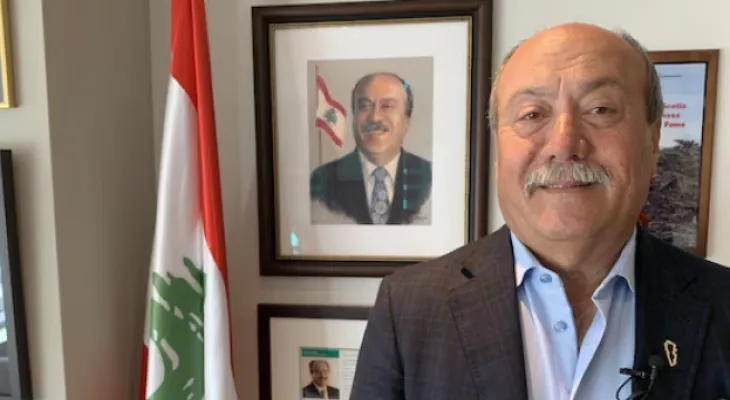Search here
Newspaper
Search here

Arab Canada News
News

Published: February 19, 2024
The management of the International French School for the Atlantic Provinces (LIFPA) officially approved the project to build a school in Halifax, the largest city in the Canadian Atlantic provinces, earlier this month. Its mayor, Mike Savage, confirmed that the significant presence of Lebanese Canadians there played a role in bringing this project to life. The school is scheduled to open its doors at the beginning of the next academic year, in September 2024.
The journey of the International French School to the Atlantic Provinces has been full of ups and downs. Initially, the school promoters chose Saint John, the second largest city in the province of New Brunswick. But after much delay, the capital of Nova Scotia was eventually selected.
At the start of the project, the Honorary Consul of Lebanon in Halifax, Wadie Faris, strongly supported the nomination of the capital of Nova Scotia as the location for the new school.
When the "Don Bosco Mobilités Internationales" Association, which is leading the project, announced its desire to build the school in Saint John, Faris wondered: "Why doesn’t the Lebanese community (in Halifax) open its own private school?"
When the idea of establishing the school in Saint John was abandoned due to the high construction costs, the Don Bosco Association and the French Embassy contacted the Honorary Consul of Lebanon again.
"Thanks to my position and for the benefit of our community, I helped them secure the site (for construction) with a real estate owner, who is a friend of mine," said the Honorary Consul Wadie Faris to Radio Canada in his office located at his construction company headquarters in Halifax.
Faris added that he has a "firm belief" that building this French school in Halifax is "a wonderful addition to our education system here in Nova Scotia."
According to Wadie Faris, the International French School for the Atlantic Provinces will offer courses in French, but also in both English and Arabic, in addition to religious education.
The school is expected to open for the 2024 - 2025 academic year in a building near the "Bayers Road Center" commercial complex.
This will be the ninth French high school in Canada according to the Agency for French Education Abroad (AEFE).
In 2023, this international French education network included 580 schools spread over 139 countries.
These schools enrolled 391,000 students, more than 60% of whom do not hold French nationality.
Wadie Faris himself was a student in a Francophone school in Lebanon, taught in French and Arabic, although today, after more than 40 years living in Nova Scotia, in an English-speaking environment, he almost forgot his mother tongue, Arabic.
Lebanese Canadians are among the large communities in Canada. "They form one of the largest Arab-origin communities," confirms historian Dr. Jean Raska, one of the trustees of the Canadian Museum of Immigration at Pier 21.
It is worth noting that Pier 21 at the port of Halifax received about 1.5 million immigrants who came to Canada by sea between 1928 and 1971 and was converted in 2009 into a national immigration museum.
According to Raska, the Lebanese community in Halifax includes about 5,000 people from various waves of immigration.
"The first wave was in the 1880s, then after World War I," Raska says, while the "major wave" was during the Lebanese Civil War (1975 - 1990) and after.
Even today, Lebanese people continue to come to Canada due to the difficult economic situation in their country.
The Lebanese community in Halifax and throughout Nova Scotia stands out in the business world, especially in construction, real estate, and the restaurant sector. The Honorary Consul of Lebanon himself is a business developer.
"This is also due to the fact that Lebanese people have always had to rely on themselves, their families, and the local community for generations and many centuries. Thus, they learned not to wait for charity and pity, and not to seek the easy way," said the president of the Lebanese Chamber of Commerce in Nova Scotia, Norman Nahhas.
"They work hard and do so with a smile, thinking of the coming generations," Nahhas added.
Generations to come will benefit from the opening of this institution, according to Nahhas.
"I am sure there will be a large number of children from the community in the school," added the Honorary Consul, although he is aware that since tuition fees will be around 15,000 dollars per year, not all families will be able to send their children to the new French school.
But "we will have scholarships to help students who cannot afford the tuition fees," added Consul Faris.
Comments